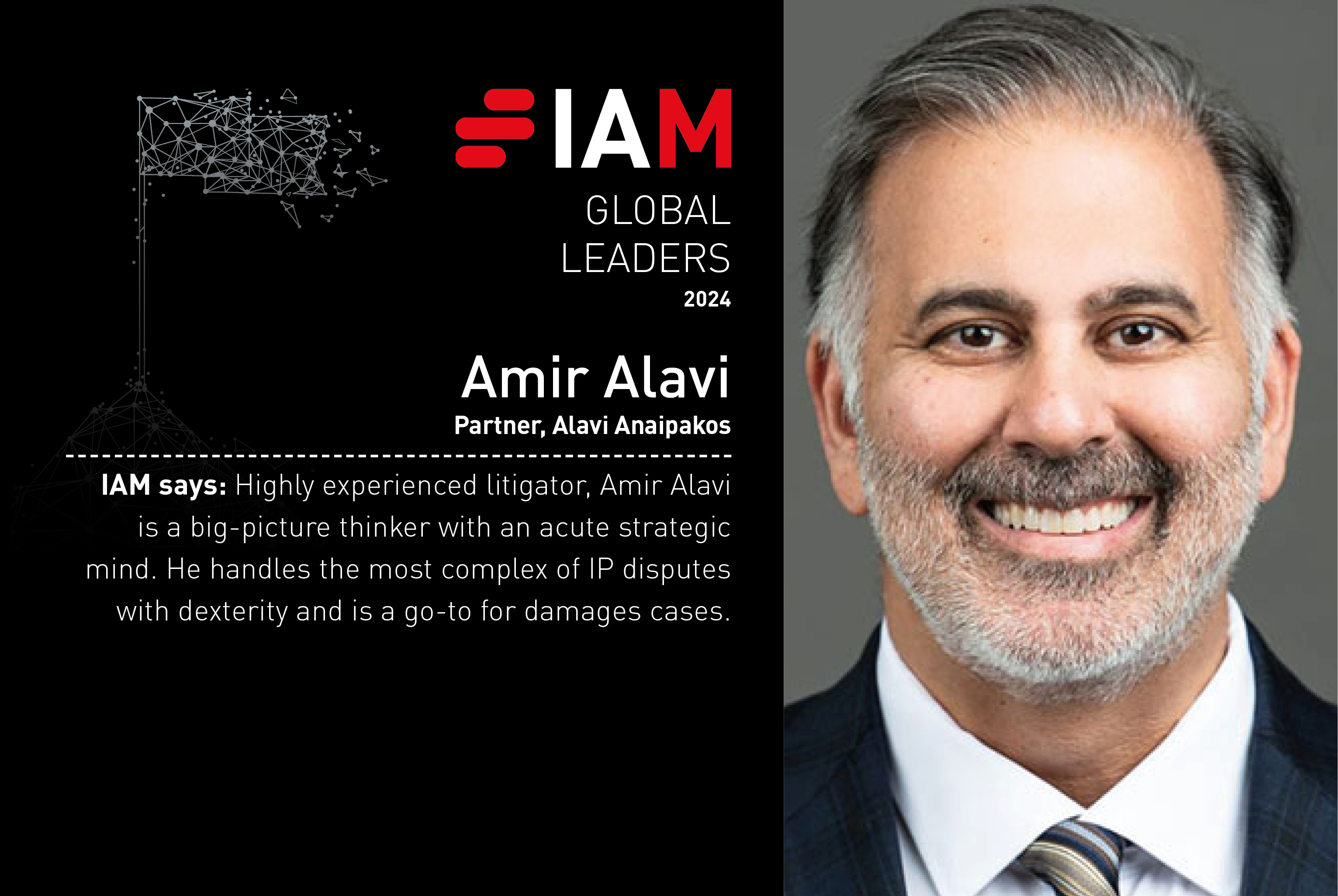Amir Alavi
 You are recognised as a leading commercial litigator. What is your secret to a winning litigation strategy?
You are recognised as a leading commercial litigator. What is your secret to a winning litigation strategy?
I find it is always best to concentrate on the eventual trial and to plan meticulously. Our team focuses on the endgame and how we will try the case when we are mapping out our litigation strategy. From the legal theories to the minutia of discovery, we master every detail, including how those theories and evidence will play out in front of a jury. This allows us to put together a solid discovery plan that delivers the evidence we need. Too many lawyers focus on the trial only a few months before it takes place, but that is too late if you want to win.
What are the biggest challenges facing your clients at present, and how are you helping to overcome these?
Cross-border issues are a major concern for our clients. The people and companies we represent in the energy industry are dealing with IP challenges around the world. Even local companies that do business in the United States and Canada need solutions in both countries. Our international clients deal with patent claims involving foreign patents and IP theft in countries outside the United States. In the consumer electronics space, we have clients struggling to monetise and protect their patent portfolios in the United States, Europe, China and India, while navigating a myriad of geopolitical issues. We have been handling multi-jurisdictional disputes for our clients for over a decade, so we have a coalition of international firms that we work with to successfully navigate these complex issues.
You previously served as general counsel for a large company. Today, how would you emphasise patent value to the C-suite in such a volatile economic climate?
Taking basic steps to protect innovation is a no-brainer for anyone who cares about their investment returns. The cost of securing patent protection is generally small, and it provides low-cost insurance not just against IP theft, but patent infringement claims as well. Patents protect your investment in innovation from theft by competitors, vendors and former employees. In a competitive market, a well-developed patent portfolio is a valuable bargaining chip (or counterclaim) when lawsuits are threatened or filed. The real question is not how much it costs to secure a patent, but how much it will cost a company if such a situation arises and it doesn’t have patent protection. In that regard, the costs are potentially crippling.
What changes would you like to see in the US patent landscape, and do you think these are likely to happen?
The biggest change I would like to see is more certainty within the system itself. When advising clients about patent issues, lawyers must deal with the uncertainty that comes with political elections. Every election brings about the possibility of a new appointment to head the USPTO. This has led to wholesale changes in guidance on inter partes review proceedings following the last election cycle. The US Congress repeatedly threatens but fails to pass patent reform legislation. Even changes in the makeup of the US Court of Appeals for the Federal Circuit threaten to change the law. To top it off, the US Supreme Court decides to get involved every once in a while and throws out established precedent. It is difficult for clients to have certainty about their patent portfolios and the threat of litigation when the system is in a constant state of flux. Unfortunately, I don’t think we will see many impactful changes any time soon.
How have you had to adapt your litigation strategy in the face of volatile economic headwinds?
Budgets have certainly become tighter and more important to clients, but this has not had an impact on our litigation strategy in specific cases. Our approach to litigation, with a focus on the trial and the key elements of the case, makes us efficient. We regularly outperform relative to our budgets. If anything, our clients have sent us more work because of these volatile circumstances.
Amir Alavi
Partner
[email protected]
Amir Alavi represents diverse clients in high-stakes IP lawsuits and complex business disputes. Certified in civil trial law by the Texas Board of Legal Specialization, Mr Alavi is widely recognised as one of the top US trial lawyers in the IAM Patent 1000, The Best Lawyers in America, Chambers USA, Texas Super Lawyers and many others. He has helped clients win multiple multi-million-dollar verdicts and settlements in addition to complete defence victories.